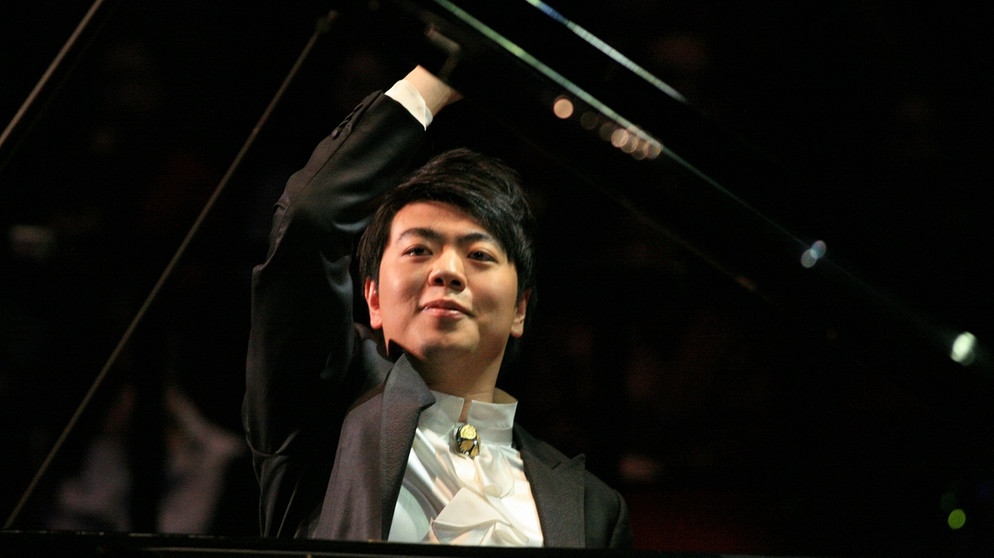New Years Eve, enjoying the Silversterkonzert from Munich, with Mariss Jansons and Lang Lang and the Symphonieorchester des Bayerischen Rundfunks. I should've been listening to Daniel Barenboim's all-Ravel concert with the Berliner Philharmoniker , like my pals did, but it's New Year's Eve ! Not the time to be safe and sober. What is wrong about having fun ? Some of us put enough into music year-round, that we can afford to party ! Like most New Year concerts, the programme was wide ranging and light hearted, a buffet with popular treats asnd more exotic fare.
The kick-off started, appropriately, with Leonard Bernstein Candide overture, but Jansons and the BRSO showed their true mettle in Debussy's Clair de Lune, in the arrangement by Leopold Stokowski. Big, full bodied yet classy and stylish. Aha, a piano piece for large orchestra on a programme with a megastar pianist ! Witty good humour. Then a bit of Elgar, gentler, more personal Elgar, closer to the composer's soul than public blockbusters. Elgar's Wand of Youth Suite no 2 is marked op. 1b though it was completed for publication long after Enigma, Gerontius and Pomp and Circunstance. The suites are compilations of some of Elgar's earliest works, some written to entertain children, but anyone, including adults can respond to the magic that is "the wand of youth". Here we heard "The Wild Bears", a jolly piece which dances with vivacious freedom. A joyous performance ! Sibelius, too, in the form of Kuolema from Valse Triste op 44, and Antonín Dvořák Slavonic Dance op 72/15.
 |
| Xian Xing Hai, (middle) in Paris with Nie Er and other compsoers |
More mainstream was the Chopin Grande valse brillante op. 18, closer to what Jansons, the orchestra and Lang Lang usually do. It's not fair to sneer at Lang Lang because he's so famous. Pianists (and violinists) have always been "pop stars". Think Chopin and Liszt or Paganini. Or Bernstein and Gergiev. Lang Lang has inspired millions of ordinary Chinese to take up western classical music : imagine the same happening in other countries where people seem to take pride in despising "elitist" art forms. Jansons has recorded Yūzō Toyama
(b 1931) Yugen, a suite for ballet, and here we heard the Men's Dance . Its use of percussion provides a strong foundation for the keening string legato and flashes of brass : you can almost visualize these ideas translated for dance.
Back to more standard New Year's Eve party fare with Pietro Mascagni Cavalleria rusticana. Intermezzo, Johannes Brahms, Hungarian Dance No 5 and the Prelude to La Revoltosa by Ruperto Chapi (1851-1909) a bit of "Spanish" colour to continue the "international" theme. To conclude, the Finale to György Ligeti's Romanian Concerto, sneaking in a dose of modern for audiences who assume they might be averse to the avant garde.

No comments:
Post a Comment